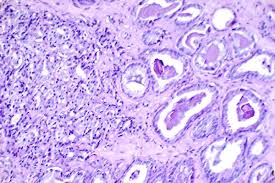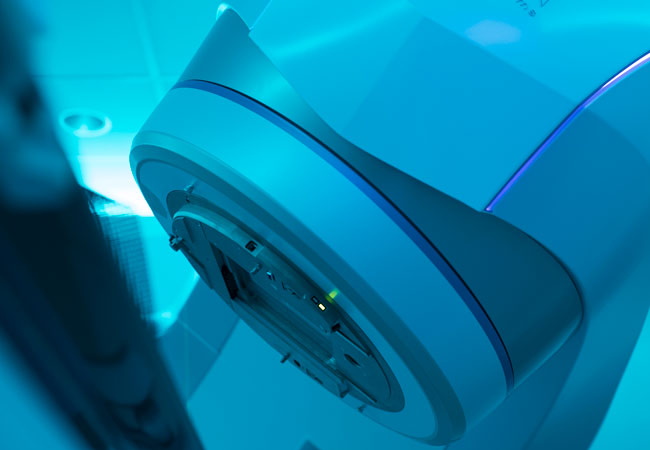Biologic Drug-Device Combination Immunotherapy for mCRPC Shows Promise
 SYNC-T, an investigational therapy that combines a device-induced vaccination at the tumor site with intratumoral infusion of a multitarget biologic drug, led to numerous clinical responses in patients with metastatic castrate-resistant prostate cancer (mCRPC). The results were reported at the American Association for Cancer Research (AACR) Annual Meeting 2024.
SYNC-T, an investigational therapy that combines a device-induced vaccination at the tumor site with intratumoral infusion of a multitarget biologic drug, led to numerous clinical responses in patients with metastatic castrate-resistant prostate cancer (mCRPC). The results were reported at the American Association for Cancer Research (AACR) Annual Meeting 2024.
Patients with mCRPC—prostate cancer that does not respond to hormone therapies—have few treatment options and a high mortality rate, according to Charles Link, MD, an adjunct professor at Lankenau Institute for Medical Research, part of Main Line Health, and a cofounder and executive chairman of Syncromune. Prostate cancer has an immunologically “cold” tumor microenvironment. This has presented challenges for existing immunotherapies, which have exhibited low response rates and high toxicity in patients with prostate cancer.
Link and colleagues developed a novel treatment approach to stimulate a systemic antitumor immune response for mCRPC. Their therapy, called SYNC-T, first uses a probe that is inserted directly into the primary or metastatic tumor to freeze a portion of the tumor, which causes the tumor cells to fracture (oncolysis) and release immune-stimulating neoantigens. In essence, this method generates a personalized in situ neoantigen cancer vaccine that serves to activate the immune system, Link explained.
Link added that the imaging and procedural techniques for inserting a probe into the prostate are similar to the methods routinely used by urologists to conduct prostate biopsies. Immediately following the oncolysis step, an investigational multitarget biologic drug called SV-102—which is a fixed-dose drug comprised of active pharmaceutical ingredients: an anti-PD-1 antibody, an anti-CTLA4 antibody, a CD40 agonist, and a TLR9 agonist—is infused into the area of lysis in the tumor.
“SV-102 simultaneously blocks two distinct mechanisms of immune suppression and activates two distinct mechanisms of immune enhancement, allowing the vaccine-induced T cells to activate and mount a systemic antitumor immune response,” said Link.
The safety and efficacy of SYNC-T were evaluated in a phase I clinical trial, which enrolled 15 patients (12 patients with mCRPC and three patients with metastatic prostate cancer who opted out of hormone therapy), 13 of which have been evaluated for response. Sixty percent of patients identified as white, 33% as Hispanic, and 7% as Black. The median age was 61 years.
Of the 13 evaluable patients, 11 experienced an objective response, with five complete responses and six partial responses). The other two evaluable patients had stable disease at the time of data analysis. Six patients experienced mild to moderate treatment-related adverse events, including fever, rigors, fatigue, diaphoresis, hematuria, urinary tract infection, acute urinary retention, and hepatic enzyme elevation.
“The toxicity of SYNC-T appears to be much lower than what has been observed previously with intravenous immunotherapy for prostate cancer,” Link noted.
“Our results indicate that SYNC-T is associated with a high response rate without generating severe toxicity in this initial group of patients, which opens up opportunities to expand the role of immunotherapy in mCRPC,” he summarized. “Further, this approach uses standard procedures already employed by urologists and radiologists, which means the treatment could potentially be rapidly adopted by treating physicians.”
Limitations of the study include the small sample size, short follow-up time, and the single-arm design.
